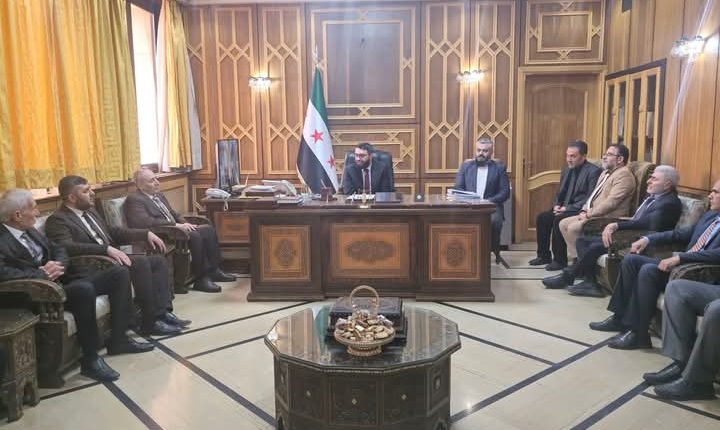Syrian Justice Minister Forms Committee to Review “Terrorism Court” Rulings
By Kardo Roj
DAMASCUS, Syria (North Press) –The Syrian Minister of Justice in the transitional government, Mazhar al-Wais, issued a directive on Thursday to establish a specialized judicial committee to reexamine verdicts issued by Syria’s terrorism court and other exceptional tribunals. The move comes amid growing domestic and international scrutiny over the legality and human rights implications of these rulings.
According to an official statement released by the Ministry of Justice, the newly formed committee will assess the legitimacy of previous verdicts and determine whether they align with Syria’s constitutional and legal standards, particularly those safeguarding individual rights and freedoms.
The Ministry emphasized that the committee will be tasked with producing comprehensive legal analyses for each case it reviews. These reports will be submitted monthly to the High Judicial Council, along with recommendations to overturn any verdicts found to violate due process or fundamental legal norms.
Syria’s terrorism court, established in 2012, has long been criticized by international human rights organizations for lacking transparency and for being used to target political dissidents, civil society actors, and journalists. Critics argue that many of its rulings are based on coerced confessions and that the court fails to meet international standards of justice.
In recent years, there has been mounting pressure on Syrian institutions to reform their legal apparatus, particularly with the country still fractured between areas under various forms of governance. The latest initiative by the transitional Ministry of Justice may be seen as part of an effort to address these criticisms and reassert the legitimacy of Syria’s judicial framework.
Legal analysts say that although the committee’s mandate appears comprehensive on paper, its ability to function independently and effect meaningful change remains uncertain.
Since the outbreak of the Syrian conflict in 2011, the country’s legal landscape has fragmented along lines of territorial control. In regions governed by the Autonomous Administration of North and East Syria (AANES), a distinct legal system has developed, based on a decentralized, community-based approach to justice that emphasizes reconciliation and transparency.
In contrast, areas under the control of opposition factions—particularly those backed by Turkey or influenced by hardline groups—often operate under ad hoc or militarized judicial systems with limited civilian oversight.
This disparity highlights the challenges of establishing a unified legal standard across the country, particularly as Syria’s political future remains in flux.
While the Justice Ministry’s decision may be interpreted as a signal toward legal reform, observers remain cautious. No timeline has been set for the committee’s completion of its review, and it is unclear whether its recommendations will carry binding authority.
Nevertheless, in a country where exceptional courts have often been synonymous with political repression, even symbolic efforts at oversight could mark the beginning of a broader legal reckoning.
Meanwhile, in northeast Syria, AANES continues to implement judicial reforms through community-based courts and civil councils. These mechanisms have gained attention from international legal observers for their relative openness and adherence to human rights norms, particularly in handling cases related to former Islamic State (ISIS) affiliates and internally displaced persons.
The coming months will reveal whether the transitional government’s initiative will gain traction or remain largely performative. The committee’s findings—and the government’s willingness to act on them—could influence how justice is perceived across Syria and affect efforts at national reconciliation.
Amid these developments, the AANES and its civilian institutions, supported by the Syrian Democratic Forces (SDF), continue to position themselves as a stabilizing force in the country’s northeast, where legal reform and security go hand in hand in shaping a post-conflict future.

